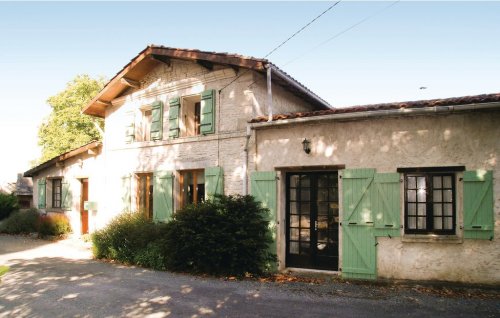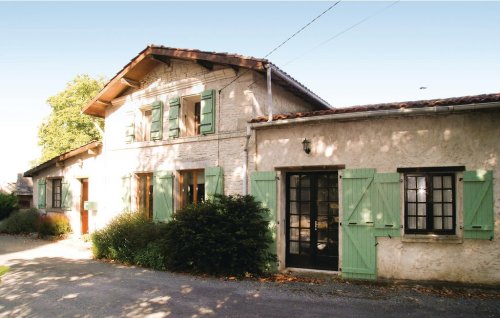
Guide to Selling Property Privately in France
Selling Property Privately in France
Well done – you have sold your French property……now get organised! Read on for Healey Fox’s detailed guide to Selling Property Privately in France to help you really get the most out of your French Property sale.
Choose your Notaire
Most vendors use the same Notaire to assist with the sale as they used for the purchase of the property in France. It is certainly easier this way as he or she will already be holding full details of the property. However, if you have made any changes to the property since buying it you must make him or her aware. Once you have instructed a Notaire do make sure that your purchaser has all the contact details of him or her and do continue to keep in touch with your purchaser throughout the whole process.
Never forget that until the 10 day ‘cooling off’ period is over you do not have a guaranteed sale. Even after this period of time your purchaser can decide to withdraw from the purchase by accepting to take a loss of the deposit they will have paid. Keep in touch regularly, it is the polite and wise thing to do!
If you have not already had the required surveys done before you marketed the property then you need to get onto this urgently. Your Notaire will be able to recommend a local person or company to carry out this work.
Get the surveys done
- SURVEYS. – Dossier Diagnostic Technique. There is a raft of surveys that need to be done before you can sell your French property. All of these are contained in the Dossier Diagnostic Technique.
- Asbestos – required for all properties with no planning permission or planning permission granted before 1997
- Lead – only in paintwork, required for all properties built before 1949. This report is valid for 12 months if lead is found or for an indeterminate period if no lead found.
- Termites – survey required only in certain departements. The report is valid for 6 months
- Natural or industrial risks – only required in specific areas. Validity of 6 months
- Gas installations – report valid for 3 months
- Electrical wiring – required if the wiring is over 15 years old. You must declare if you have installed any form of English wiring. Valid for 3 years
- Septic tank – if the fosse septique is found to be defective the owner of the property has 12 months to comply with whatever needs to be done. The installation of a new system can cost between €5000 to €15000
- Energy efficiency – this is the one that causes a problem as, by law, it must be done before a house is put up for sale and the energy rating must be declared in any advertising of the property. However, it is usually cheaper to have all surveys done at the same time.
The cost of a complete Dossier Diagnostic Technique can be between €400 and €900, obviously depending on the size of your property. It can normally be cheaper to get the whole survey done at the same time but because the energy effciency survey needs to be done before you can market the house, owners face a dilemma – either save money by having it all done at once or pay for the energy efficiency survey and wait until you have a buyer to get the other surveys done, some of which are time limited. Whatever you decide you will have to have all surveys done before the first sale contract (Compromis de Vente) can be signed.
The paperwork and process involved in selling your house in France
FIRST CONTRACT- THE COMPROMIS DE VENTE
The first contract, one of two legally binding contracts involved in the sale and purchase of a French property, can be referred to as the Sale and Purchase Contract, the Promesse de Vente or the Compromis de Vente.
The Compromis de Vente will include the following information:-
- Civic status of all sellers and purchasers
- Description of the property with the cadastral (land plan) references and the surface area
- The agreed price, including the agency fee
- The estimated Notaire’s fee
- Information on the status of the Dossier Diagnostic Technicque reports
- Any conditional clauses (conditions suspensive) which are anything that is vital to the purchaser and without which the purchase will not go ahead i.e. mortgage finance (for which details of the organisation granting the mortgage, the rate of interest and the term must be quoted), planning permissions etc.
- Circumstances under which the deposit may be forfeited
- Obligations and declarations of the vendor
- Target completion date
- List of any furniture and fittings included in the purchase
Once the Compromis de Vente is signed by all parties there is a ‘cooling off’ period for the buyers only. This period starts the day after the signed Compromis De Vente is received by the buyer. If at this point the buyer wishes to withdraw from the purchase they must notify the agent or the Notaire in a letter sent by Recorded Delivery. Once the ‘cooling off’ period is over the deposit (5-10% of the purchase price) is paid and the purchaser will send it to the Notaire or the agent who will hold it in a non-interest bearing client account.
The target completion date contained in the Compromis de Vente must only be viewed as the ‘target’ and before you make any plans dependant on signing the final contract you will need to check with the Notaire to receive a firm date.
What Happens Next
The Notaire is a public officer and a legal specialist who draws up authenticated contracts for clients.The main task of the Notaire in a property sale and purchase is to check that everything listed in the Compromis de Vente is correct. To this end he or she will check with the Land Registry that the property, as defined in the Compromis de Vente, is owned by the vendor and that there are no charges on the property. These legal searches can take 2-3 months.
ACTE DE VENTE
The Acte de Vente or Acte Authentique is the second and final contract involved in selling your house. It is similar in format to the Compromis de Vente but includes more detail with regard to the property, the mortgage and the insurance and also includes a breakdown of the taxes payable. Attached to the Acte will be the reports as contained in the Dossier Diagnostic Technique.
The Notaire will inform the vendors and buyers when the Acte is ready for signing. He or she will also call for the mortgage funds and/or request final payment from the buyer. These funds must be in the account of the Notaire before the final signing of the Acte. To complete the Acte the vendors, purchasers and Notaire will need to sign the document. If it is not possible for any of the vendors or buyers to be present then each of them need to arrange a Power of Attorney (procuration) in advance. This document will need to be drawn up by the Notaire and signed in front of the Notaire in France or a public Notary in the U.K. The Power of Attorney gives a nominated person (usually a clerk in the Notaire’s office) authority to sign the Acte on your behalf.
Once the Acte is signed by all parties and witnessed by the Notaire, he or she will provide an Attestation, which is a document confirming the transfer of ownership. This will be needed when terminating utlilities and services.
TAX FONCIERE
The amount of tax which you have paid for the current year will be proportioned by the Notaire giving you a refund for this. However, the tax d’Habitation, currently still being charged, is not deemed to be payable by the new owner.
CAPITAL GAINS TAX
Capital Gains Tax (Impôt sur les plus values) is only payable if the property you sell is not your main home. It is vital that you keep all bills for any renovation work that you have had carried out to the property as these costs will be offset against the Capital Gains Tax liability.
If you are resident in the U.K. the Capital Gain must also be declared to HMRC on Form SA108. However, by completing FORM SA106 you can offset the Capital Gains Tax you have already paid in France.





